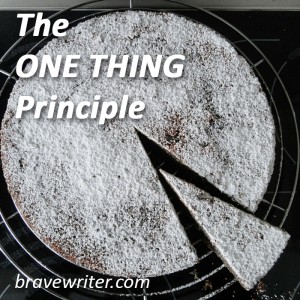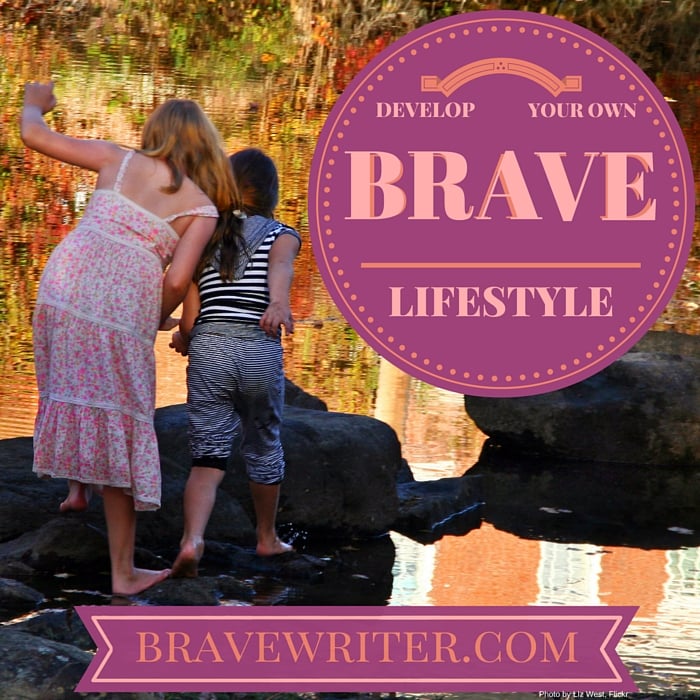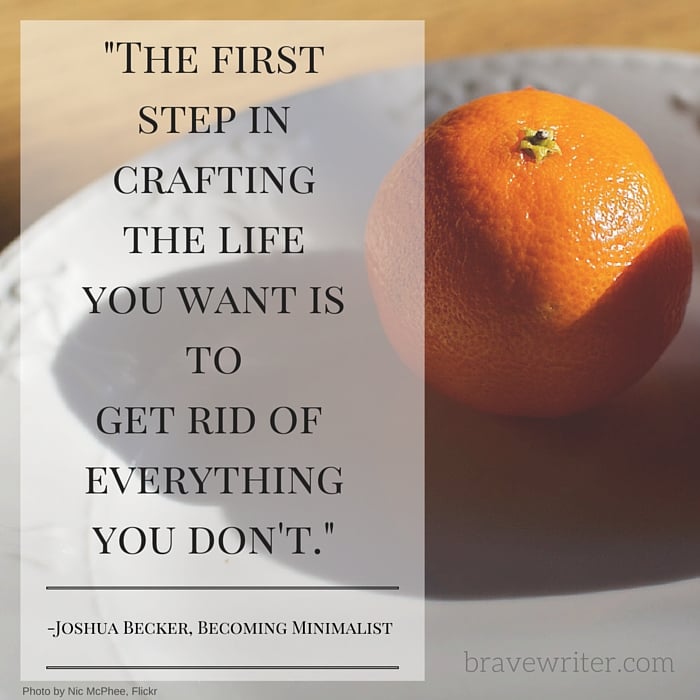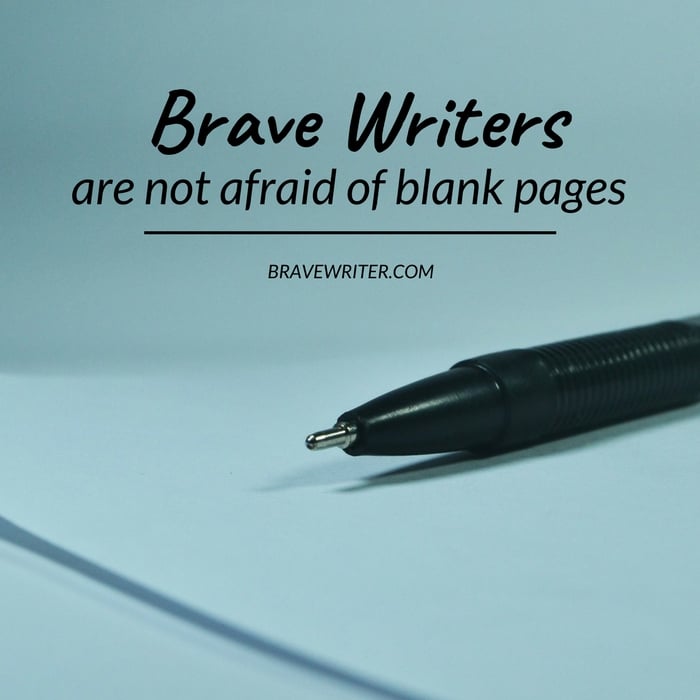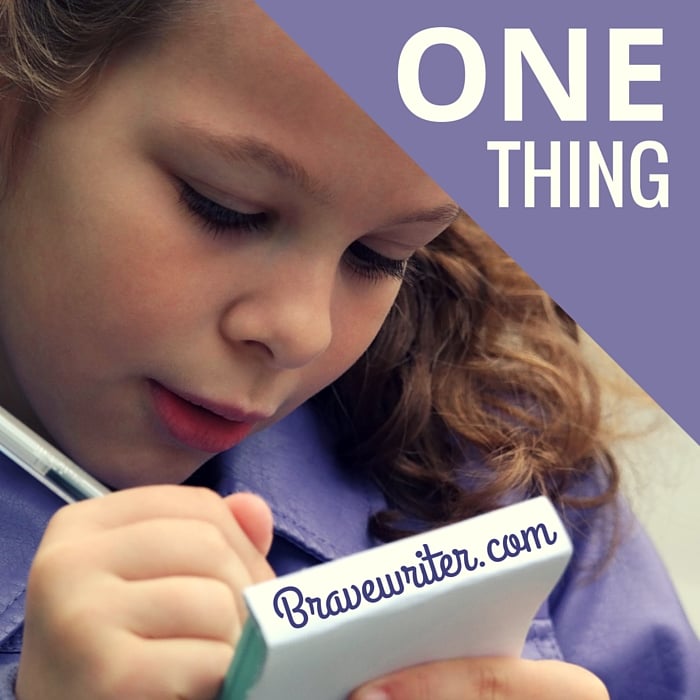
How can you fit the “new and cool ideas” into an already full life?
A recurring question about the “one-thing” principle is how to fit everything in if we start moving that slowly in homeschool. In other words, if I take time for tea and poetry and it uses up most of my Tuesday, and then if I focus on copywork the next day and make that a joy and a success on Wednesday, and then Thursday, we read four chapters of the novel we are now savoring, and finally on Friday, we have a rousing good time doing a Friday Freewrite where we prepare to write, write and then share the writing with each other… when will we ever get back to math or science or history?
Just as you’ve taken the time to really savor those literary experiences, you will want to do the same with math, science or history. There will possibly be that time when you put your Brave Writer Lifestyle practices on the back burner for a day as you focus on math (for a morning! not just for two pages). You might find that your BW practices bleed over into other subjects.
For instance, what if you decided to really prepare for a morning of math. You look ahead to the concepts and find games that reinforce the concept. You might find a library book that shows how the concept works. You might mosey over to the website Living Math which gives you practical ways to make math relevant.
Then the morning comes and you have a math tea party. Perhaps while you play the game, do the math page, read the living math book, you drink tea and eat some brownies. Maybe you divide the brownies up into 1/16ths and talk about how you did that.
Learning to do One Thing enriches the overall experience.
The point is that as you give yourself to one experience fully, you will discover how the way you prepared, the way you executed, the methods you used for enhancing the experience actually transfer to any of your educational objectives. Additionally, you will learn more in these highly focused moments because your full attention will be directed into that activity (rather than divided).
Learning to give yourself fully to one thing at a time, for a time,
enhances the overall experience.
You might make copywork about a math principle, you might have your kids narrate about history, you might suggest they write about a science experiment, your children might read poems about the natural world, they might drink tea and light candles to play Sudoku!
You might find that the “one-on-one time” reminder in the Brave Writer Lifestyle means that you spend one-on-one time with the child who needs to learn his multiplication tables. Perhaps you throw a baseball back and forth with just that child to practice them. Or perhaps one-on-one time can be used to read one book with one child.
Take these principles and use them to augment all of your aims for homeschool. Stop doing what makes you and your children miserable. If they are unhappy, rethink the subject/assignment/goal and find a way to change it.
Ask these questions:
- Would he be more able to handwrite if I did it with him?
- Would tasty snacks during math help?
- Would she be more alert if we read the science book outside?
- Would it help if I rubbed his shoulders first?
- Is there a game online that demonstrates this principle?
- Do any of my friends understand X better than I do? How do they teach it?
- Has anyone written a quality book about this subject (novel or compelling non-fiction)? Can we start there instead of the dry workbook?
Take it “one thing” at a time and slowly modify what you do with your children to create momentum that leads to joy and immersion in the topic/practice. Enter into it yourself.
Taking it one slice at a time….
If you want to keep reading more about One Thing and how the practice can impact your homeschool approach, click on the one piece of cake or read the category by clicking here.

